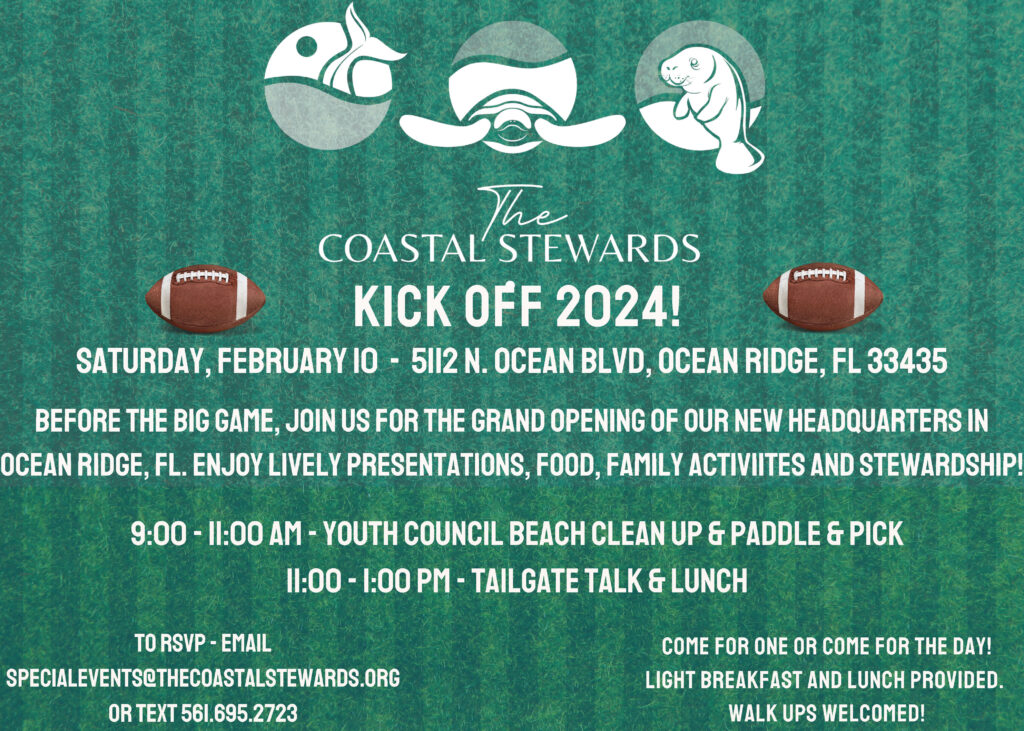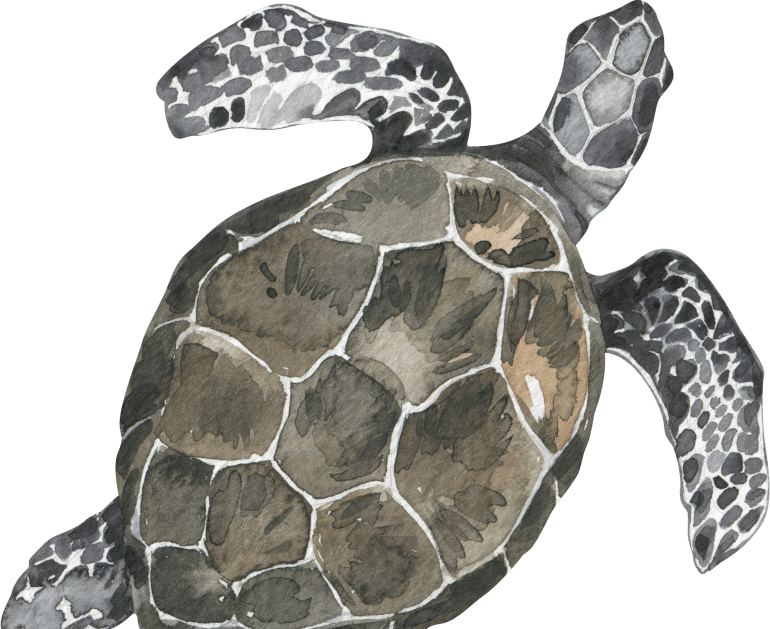
The Coastal Stewards’ Sea Turtle Rehabilitation and Release Program is led by veterinarian Dr. Shelby Loos, Director of Marine Life Conservation, and her skilled team. Accredited with a Marine Turtle Permit from the Florida Fish and Wildlife Conservation Commission (FWC), The Coastal Stewards are permitted to rehabilitate sea turtles, and release them when ready. All of the organization’s sea turtle rehabilitation and release activities are performed at the Gumbo Limbo Nature Center in Boca Raton. The Coastal Stewards’ mission is to rehabilitate and release sea turtles in need as we inspire others to care and support the stewardship and research of the coastal and marine life ecosystems that surround us.
Along the Florida coast, there are a select few organizations that are permitted by the FWC to rehabilitate sea turtles, and several other organizations permitted to perform the rescue of those sea turtles. Because sea turtles are an endangered species, there is an extensive application process to ensure proper facilities and qualification of staff members prior to approving a permit for sea turtle rehabilitation. For the southeast coast of Florida, when a sea turtle is in need, the FWC will contact one of the permitted organizations to rescue the turtle and that organization will transport the patient to the closest rehabilitation hospital, such as the rehab center at Gumbo Limbo Nature Center, for rehabilitation and medical treatment
When a sea turtle patient arrives at The Coastal Stewards’ rehab center, a team of experienced professionals, including Dr. Loos, Veterinary Nurse Lauren Hitselberger, Rescue and Rehabilitation Coordinator Kara Portocarrero, a few interns, and numerous volunteers all go to work to treat the animal.
Sea turtles that need our help may suffer from a variety of injuries and illnesses. The most common are:
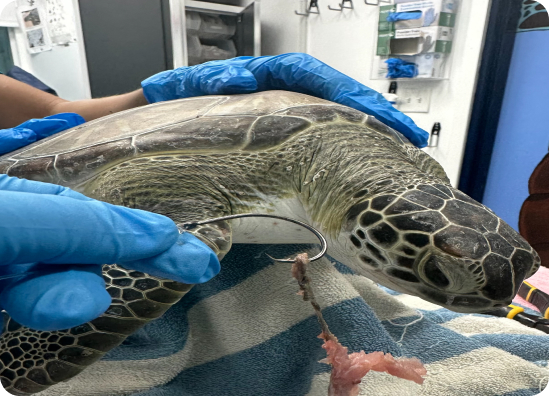
Once a sea turtle is brought to the rehab center, Dr. Loos and her team will do a full evaluation, including a physical exam, X-rays, and a full bloodwork panel. Each sea turtle is unique and responds differently to their injuries, which requires Dr. Loos to tailor a unique treatment plan for each patient. Depending on each patient’s unique medical condition, additional diagnostics such as a CT scan may be performed. Diagnostics such as bloodwork and x-rays are rechecked as needed to be able to monitor the response to treatment and adjust treatment plans accordingly until the animal is healthy and deemed ready for release.
On a daily basis, The Coastal Stewards closely monitor each sea turtle’s appetite and behavior to ensure they are comfortable and adapting well to their new environment. The team cares for the patients by keeping their hospital pools clean, providing them individually tailored diets, and performing daily treatments – such as antibiotics, pain medications and fluids – until they are healthy and strong enough to be released back into the ocean.
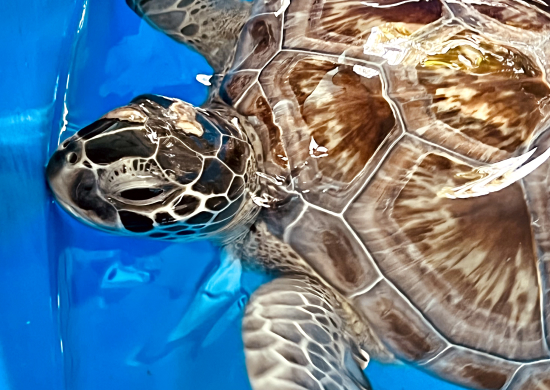
Our Rehabilitation Center is located within the Gumbo Limbo Nature Center in Boca Raton (1801 N. Ocean Blvd, Boca Raton, FL). The nature center is open to visitors who would like to see our sea turtles and to learn more about marine life conservation. At the rehab center, guests can view the sea turtles, ask questions of our rehab team, and learn about the different cases. There is also a viewing area of the treatment room, where Dr. Loos and her team perform surgery and medical procedures.
Hours are as follows:
*Note, the rehabilitation center may need to close intermittently as needed to make room for patient intake, if radiographs are being performed, or if staff are out conducting an animal rescue.
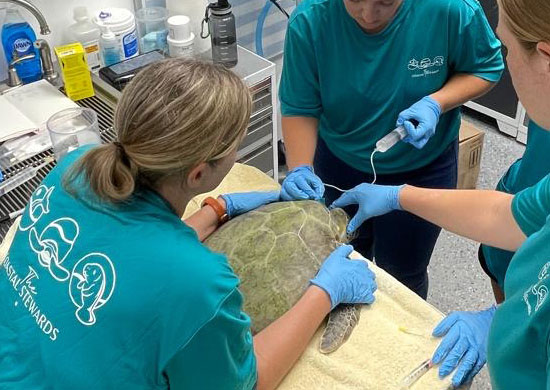
If you find a dead, sick, or injured sea turtle, please call FWC’s 24-hour Wildlife Alert Number: 1-888-404-3922 and be prepared to answer the following questions:
501c3 not-for-profit, tax exempt organization.
Follow us:



